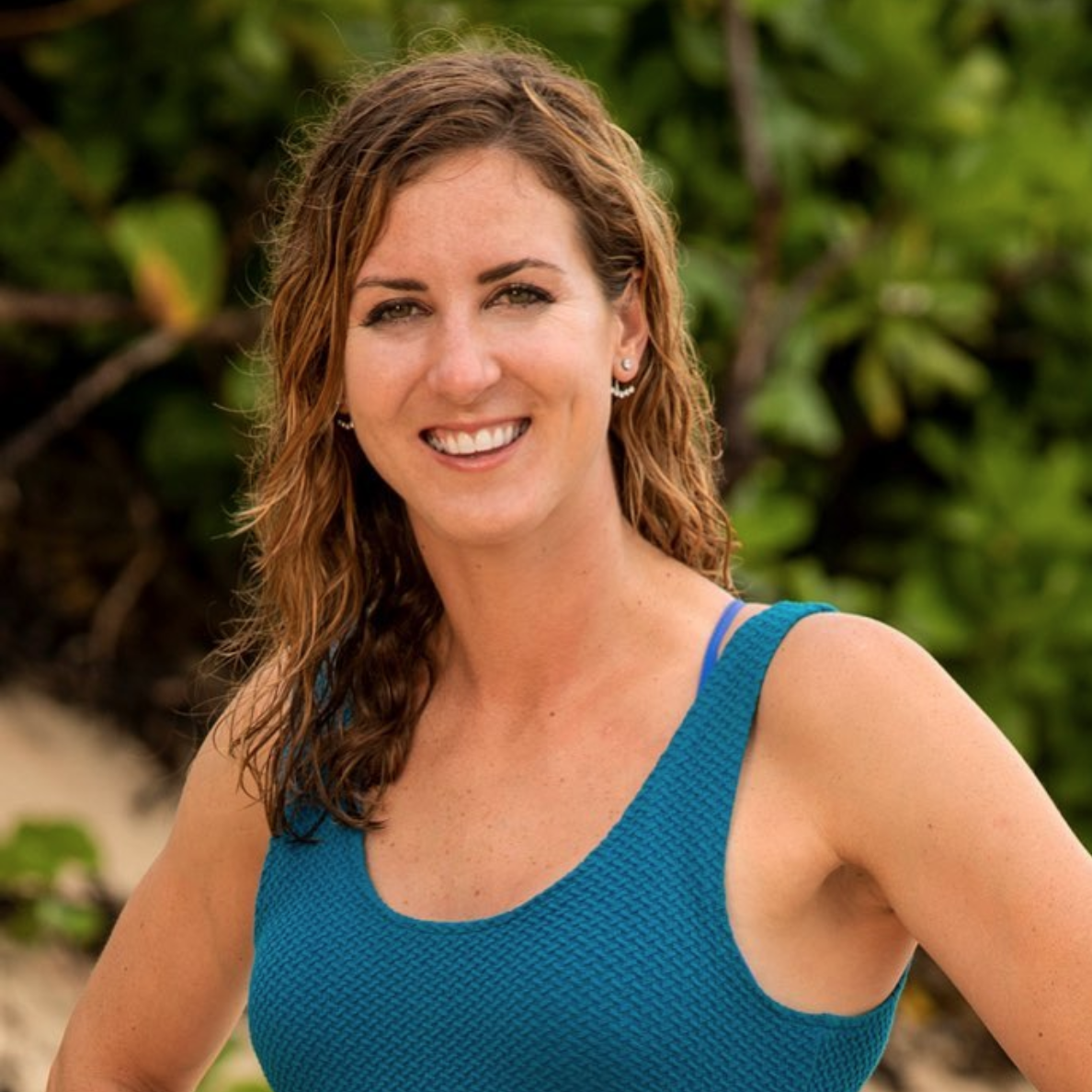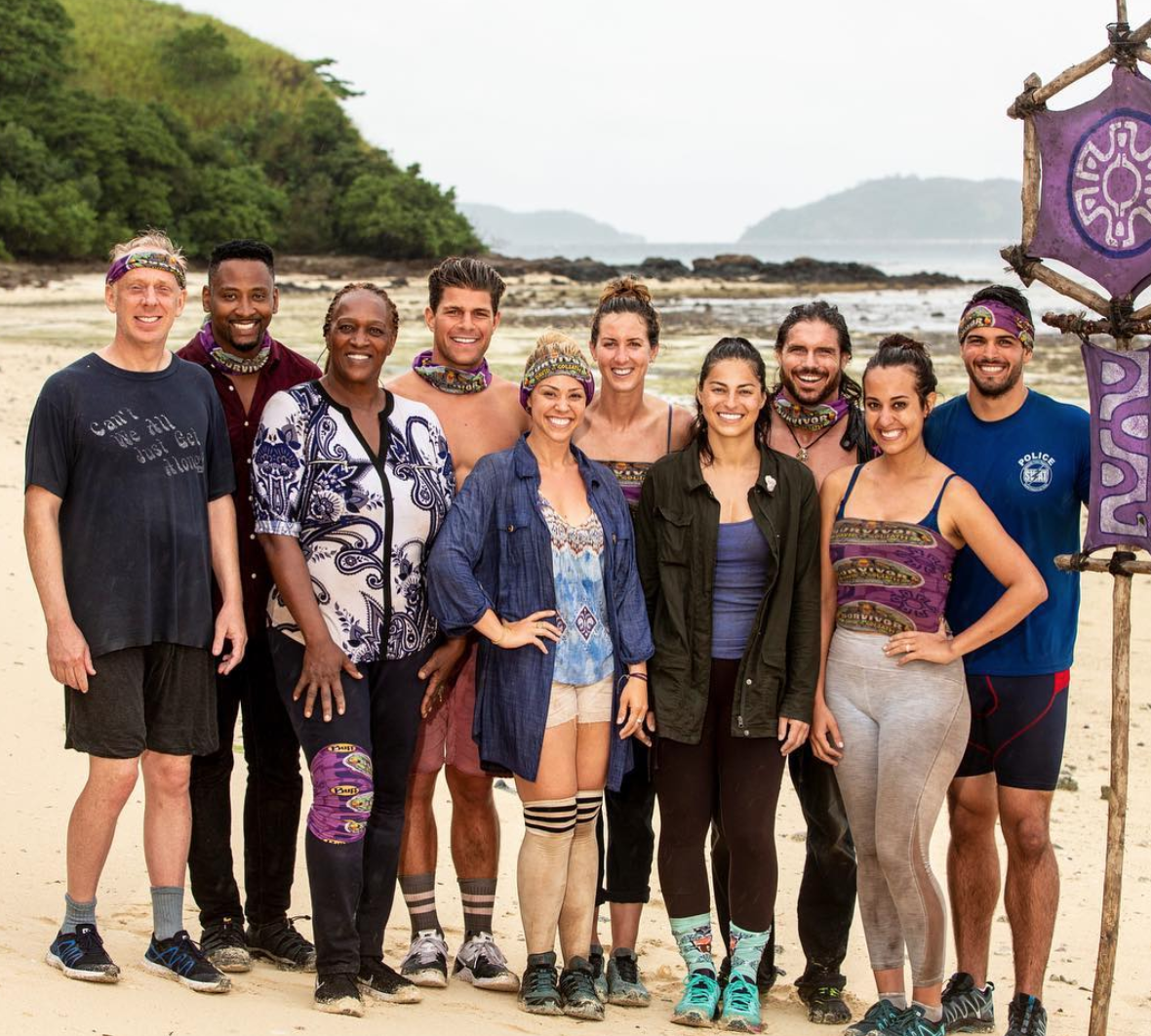
What differentiates those with grit is often how they frame life. For Alison Raybould, MD, chief resident in the department of medicine, everyday is like Christmas, and she approaches each with humor and realism. She plans to be an oncologist, and recognizes that the connection to patient health and healing–along with end of life care–relies on true patient interactions, with full awareness of the complexities of human nature.
But last year, Raybould felt a gravitational pull to do something off course. She’d followed a well-defined path and was happy with her career. Yet, while on a stretch of eight ward months in a row, and after working a 30-hour call shift in the MICU–when most would go straight to bed–Raybould stayed up to watch castaways snorkel with stingless jellyfish in a Survivor re-run. It wasn’t the allure of the island escape trading the daily routine that appealed to her; it was how the experience challenged the mental fortitude of the participants.

“I wasn’t there for the survivalist aspect as much as I was for the psychological experiment and the observation of human interactions, because essentially, that’s what I think makes survivor such a beautiful game,” Raybould said.
One year later, she’s a contestant on the CBS Survivor series, competing for a grand prize of $1m. She says her internal medicine residency experience prepared her to play what she describes as a glorious social game. The obsession, she calls it, began during her intern year when she was deciding to pursue oncology. She had returned to the show after a decade of not watching. Coincidentally, the first episode she watched had a compelling storyline about a participant’s mother who had been diagnosed with stage four lung cancer. The sharing of something deeply personal, set against the vulnerability of survivor mode, stayed with her.
“I wanted to do this to challenge myself outside my bounds. Imagine, twenty strangers, who would never have the opportunity to meet each other in real life, and you strip them not only of their creature comforts but of their bare necessities. You push them to the threshold of their comfort level, and meanwhile, you have them initially work as a tribe but then ultimately have them compete individually for a million dollars.”
Team Goliath
In “Survivor: David vs. Goliath,” castaways are divided into two tribes — those who are born with advantages versus those who are not.

“I was placed on the Goliath tribe–which I was uncomfortable with at first–because it means you are the giant who is going to fall, and you don’t want that to be your arc. You want to be the David, the underdog. And obviously, looking back now, Goliath was probably a giant who had acromegaly and was at a huge disadvantage to David. I didn’t really like the ascription because it is a prideful one. But I realized it was because my family is exceptional.”
Raybould comes from a close-knit family, one of five kids, and says she’s inspired by each of them. Four out of five played college soccer, and four of the five also went to Ivy League universities. Her dad is an internist in Kansas City and her mom is a retired intensive care nurse.
She also says her medicine path exposed her to the human condition, which often requires making emotionally complex decisions. Medicine residents train to self-regulate, to make the best decisions possible when time is short, to bring about the best outcome. Her experiences may have turned out to be a strategic advantage in the game.
As contestants provide their own food, and shelter, in Robinson Crusoe-style, Survivor participants are set up to brave the elements, which can result in the break down of basic human interactions. Tribal relationships become personal–some players unite and others divide. The challenges are both physical and mental.
Raybould shared an experience around the campfire with her tribe, that revealed how passionate she is about caring for patients.
“It was one the hardest cases ever in the MICU. A patient, who was my age at the time, was pregnant and had lung disease. When she came in for respiratory failure, it improved at first and then worsened significantly. She needed to be intubated.”
Raybould and the care team knew the pregnancy was worsening the patient’s respiratory status, and there was an ethical dilemma about what to recommend. Each scenario was carefully considered.
“I remembered being a part of a meeting with subspecialists, and I thought about the brain power that went into this complex recommendation, that considered two lives, knowing that if the baby survived and the mom didn’t, that someone else would raise the baby. Ultimately the decision was made to deliver, but unfortunately, the patient quickly worsened.”

Raybould was distraught seeing a young woman her age, die, leaving behind a newborn child to grow up without a mother.
“Cases like that, that are so complex, grow your emotional maturity. As I described my life, my passion, and my career, the tribe knew that I was being genuine with them.”
“I feel I have this great privilege to care for people with cancer, or to give them more meaningful time by treating them with advanced therapies. I also want to give full weight to end of life discussions, because there’s no scarier word out there [than cancer]. I feel such a duty to care for them. Even when the treatment stops, the caring doesn’t. I think that’s what appeals to me most about oncology.”
The battle to outwit, outplay, and outlast each other in an attempt to become the sole survivor is now into the fourth week. Raybould is still surviving with a ration of rice the size of a golf ball, each day, augmented by hemit crabs, fish and coconut–whatever she can find–sleeping two hours a night on an island in Fiji. Her friends in medicine feel sure she’ll continue on–in a bold way. The Dr. Alison Raybould way.
The show airs Wednesday nights on CBS-17, at 8 p.m. An interview with Raybould can be accessed here.